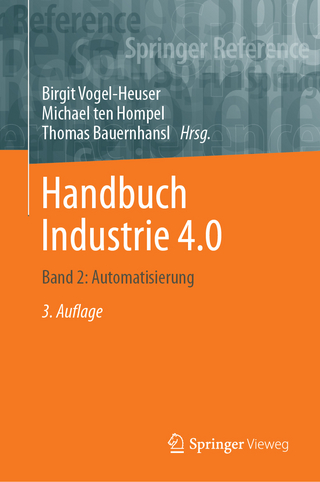
The e Hardware Verification Language
Seiten
2013
|
Softcover reprint of the original 1st ed. 2004
Springer-Verlag New York Inc.
978-1-4757-7926-4 (ISBN)
Springer-Verlag New York Inc.
978-1-4757-7926-4 (ISBN)
I am glad to see this new book on the e language and on verification. Preface This book provides a detailed coverage of the e hardware verification language (HVL), state of the art verification methodologies, and the use of e HVL as a facilitating verification tool in implementing a state of the art verification environment.
I am glad to see this new book on the e language and on verification. I am especially glad to see a description of the e Reuse Methodology (eRM). The main goal of verification is, after all, finding more bugs quicker using given resources, and verification reuse (module-to-system, old-system-to-new-system etc. ) is a key enabling component. This book offers a fresh approach in teaching the e hardware verification language within the context of coverage driven verification methodology. I hope it will help the reader und- stand the many important and interesting topics surrounding hardware verification. Yoav Hollander Founder and CTO, Verisity Inc. Preface This book provides a detailed coverage of the e hardware verification language (HVL), state of the art verification methodologies, and the use of e HVL as a facilitating verification tool in implementing a state of the art verification environment. It includes comprehensive descriptions of the new concepts introduced by the e language, e language syntax, and its as- ciated semantics. This book also describes the architectural views and requirements of verifi- tion environments (randomly generated environments, coverage driven verification environments, etc. ), verification blocks in the architectural views (i. e. generators, initiators, c- lectors, checkers, monitors, coverage definitions, etc. ) and their implementations using the e HVL. Moreover, the e Reuse Methodology (eRM), the motivation for defining such a gui- line, and step-by-step instructions for building an eRM compliant e Verification Component (eVC) are also discussed.
I am glad to see this new book on the e language and on verification. I am especially glad to see a description of the e Reuse Methodology (eRM). The main goal of verification is, after all, finding more bugs quicker using given resources, and verification reuse (module-to-system, old-system-to-new-system etc. ) is a key enabling component. This book offers a fresh approach in teaching the e hardware verification language within the context of coverage driven verification methodology. I hope it will help the reader und- stand the many important and interesting topics surrounding hardware verification. Yoav Hollander Founder and CTO, Verisity Inc. Preface This book provides a detailed coverage of the e hardware verification language (HVL), state of the art verification methodologies, and the use of e HVL as a facilitating verification tool in implementing a state of the art verification environment. It includes comprehensive descriptions of the new concepts introduced by the e language, e language syntax, and its as- ciated semantics. This book also describes the architectural views and requirements of verifi- tion environments (randomly generated environments, coverage driven verification environments, etc. ), verification blocks in the architectural views (i. e. generators, initiators, c- lectors, checkers, monitors, coverage definitions, etc. ) and their implementations using the e HVL. Moreover, the e Reuse Methodology (eRM), the motivation for defining such a gui- line, and step-by-step instructions for building an eRM compliant e Verification Component (eVC) are also discussed.
Verification Methodologies and Environment Architecture.- Verification Methodologies.- Anatomy of a Verification Environment.- All About e.- e as a Programming Language.- e as a Verification Language.- Topology and Stimulus Generation.- Generator Operation.- Data Modeling and Stimulus Generation.- Sequence Generation.- Response Collection, Data Checking, and Property Monitoring.- Temporal Expressions.- Messages.- Collectors and Monitors.- Scoreboarding.- Coverage Modeling and Measurement.- Coverage Engine.- Coverage Modeling.- e Code Reuse.- e Reuse Methodology.- si_util Package.
| Erscheint lt. Verlag | 23.3.2013 |
|---|---|
| Zusatzinfo | XXII, 349 p. |
| Verlagsort | New York, NY |
| Sprache | englisch |
| Maße | 155 x 235 mm |
| Themenwelt | Mathematik / Informatik ► Informatik ► Theorie / Studium |
| Informatik ► Weitere Themen ► CAD-Programme | |
| Technik ► Elektrotechnik / Energietechnik | |
| ISBN-10 | 1-4757-7926-7 / 1475779267 |
| ISBN-13 | 978-1-4757-7926-4 / 9781475779264 |
| Zustand | Neuware |
| Informationen gemäß Produktsicherheitsverordnung (GPSR) | |
| Haben Sie eine Frage zum Produkt? |
Mehr entdecken
aus dem Bereich
aus dem Bereich
Band 1: Produktion
Buch | Hardcover (2024)
Springer Vieweg (Verlag)
CHF 139,95
Buch | Softcover (2023)
Beuth (Verlag)
CHF 138,60
Band 2: Automatisierung
Buch | Hardcover (2024)
Springer Vieweg (Verlag)
CHF 139,95


